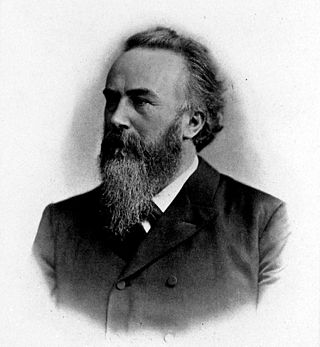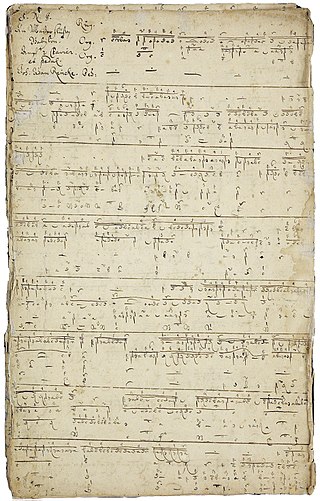Related Research Articles

Christoph Wolff is a German musicologist. He is best known for his works on the music, life, and period of Johann Sebastian Bach. Christoph Wolff is an emeritus professor of Harvard University, and was part of the faculty since 1976, and former director of the Bach Archive in Leipzig from 2001 to 2014.
The 17th century organ composers of Germany can be divided into two primary schools: the north German school and the south German school. The stylistic differences were dictated not only by teacher-pupil traditions and international influences, but also by separate organ building traditions: northern organs tend to have a tower layout with emphasis on the pedal division, while southern and Austrian instruments are typically divided around a window and emphasize manual divisions.

Harald Vogel is a German organist, organologist, and author. He is a leading expert on Renaissance and Baroque keyboard music. He has been professor of organ at the University of the Arts Bremen since 1994.

Julius August Philipp Spitta was a German music historian and musicologist best known for his 1873 biography of Johann Sebastian Bach.
Klaus Hofmann is a German musicologist who is an expert on the music of Johann Sebastian Bach.

"An Wasserflüssen Babylon" is a Lutheran hymn by Wolfgang Dachstein, which was first published in Strasbourg in 1525. The text of the hymn is a paraphrase of Psalm 137. Its singing tune, which is the best known part of the hymn and Dachstein's best known melody, was popularised as the chorale tune of Paul Gerhardt's 17th-century Passion hymn "Ein Lämmlein geht und trägt die Schuld". With this hymn text, Dachstein's tune is included in the Protestant hymnal Evangelisches Gesangbuch.
Werner Jacob was a German organist, composer and academic.

An Wasserflüssen Babylon is a chorale fantasia for organ by Johann Adam Reincken, based on "An Wasserflüssen Babylon", a 16th-century Lutheran hymn by Wolfgang Dachstein. Reincken likely composed the fantasia in 1663, partly as a tribute to Heinrich Scheidemann, his tutor and predecessor as organist at St. Catherine's Church, Hamburg. With its 327 bars, it is the most extended repertoire piece of this kind. Reincken's setting is a significant representative of the north German style of organ music.

Jean-Claude Zehnder is a Swiss organist in church and concert, harpsichordist, and musicologist. In research and playing, he is focused on Baroque music, and has played and recorded at historic organs in Europe. He led the department for organ at the Schola Cantorum Basiliensis from 1972 to 2006. His publications include books and music editions, such as organ works by Johann Sebastian Bach.
Heinrich Arnold Theodor Spitta was a German music educator, composer and musicologist.
Hans Heinrich Eggebrecht was a German musicologist and professor of historical musicology at the Albert-Ludwigs-Universität in Freiburg.
Konrad Küster is a German musicologist.
Dietrich Berke was a German musicologist and Chief editor of the Bärenreiter music publishing house.
Walther Hermann Vetter was a German musicologist. From 1946 to 1958, he was professor at the Humboldt University of Berlin.
Michael Heinemann is a German musicologist and university professor.
Arno Forchert was a German musicologist.
Heinz Lohmann was a German organist, editor and composer.

Rudolf Steglich was a German musicologist, music editor and academic teacher, who was professor at the University of Erlangen from 1930 to 1956. His focus was life and music of George Frideric Handel. He was instrumental in the composer's revival from the 1920s, and was from 1955 co-editor of the Hallische Händel-Ausgabe, the critical edition of the composer's complete works.
Gustav Fock was a German music historian, editor early music and organologist. He is considered the most important Schnitger researcher of his time.
References
- ↑ Die Orgelwerke von Heinrich Scheidemann on WorldCat
- ↑ Richard Wagner und Karlsruhe on WorldCat
- ↑ Bachs Orchesterwerke : Bericht über das 1. Dortmunder Bach-Symposion, [Januar] 1996 on WorldCat
- ↑ Schütz-Gesamtausgaben on WorldCat
- ↑ Opernkomposition als Prozess on WorldCat
- ↑ "The Editors". www.breitkopf.com. Retrieved 2021-04-28.